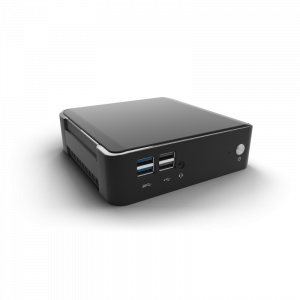Centralized or Decentralized There is No Question
Todd Weaver
PGP Fingerprint: B8CA ACEA D949 30F1 23C4 642C 23CF 2E3D 2545 14F7
Latest posts by Todd Weaver (see all)
- Closing the App Gap; Focus and Momentum - September 9, 2025
- Hardware Encrypted COMSEC Bundle by Purism - April 29, 2024
- Purism Differentiator Series, Part 14: Surveillance Capitalism - April 23, 2024
Sometimes I am asked why I don’t have an instagram, facebook, snapchat, tiktok, google, or X account (fun fact x.com is one of the few single letter domains ever granted–a not often reported on fact). The reason I originally refused to ever sign up for these centralized services is because well… they’re centralized. Meaning there is a centralized authority that would require that I give up control of my digital life—or a portion of it—to these corporations that could do with it whatever their latest terms of service allow, primarily to exploit my personal information for profits at the expense of my privacy, my security, and my freedom.
Freedom
Our civil liberties include privacy which is the corner stone of freedom, for without privacy there is no freedom. Without privacy, you have no control over your life.
Freedom is a founding principal of the Internet, it was designed to be able to have complete control of your domain (the literal noun meaning “territory over which rule or control is exercised”), and any single person could register a domain name and have complete control over their domain. Same goes for businesses and their (registered) domains.
Domains
Tech giants and their domains: instagram.com, facebook.com, snapchat.com, tiktok.com, twitter.com, x.com, google.com, gmail.com, microsoft.com, apple.com, etc. are all domains for companies who have complete control over them.
Consequently, those companies need to adhere to the laws of the land (or jurisdiction) sometimes where they are registered, sometimes where they have servers, sometimes where they operate or have customers. If you create an account at one of these corporate domains you are entering their house and have to play by their rules (aka terms of service that you never read), so whatever they say and whatever rules they decide you have little to no say over and are under the complete (oftentimes oppressive) rules that those domains enforce. All this control given up for an in-domain handle, nickname, or account that the end user or business never really owns.
This is why you have to click on “I Agree” accepting their terms of service before you can use your account, or use apps, or even their operating systems that include Android OS, Apple iOS, or MS Windows.
When you click on “I Agree” you are agreeing to give up control to the centralized authority (Alphabet, X, TikTok, Meta, etc.) at the expense of your privacy and freedom, after all, it is their domain you are entering.
Handles, Nicknames, and Accounts
When you hear somebody ask “What’s your Instagram Handle?” or “What’s your TikTok ID?” or “Are you on Snapchat?” or you see the icon for Instagram, TikTok, or Snapchat followed by an account, these are shorthand for domain.com/account. In the decentralized internet accounts are interoperable with other domains so user@domain.com can communicate with friend@alternative.com and for social this can be @user@domain.com sending to @friend@alternative.com (if you host your own domain (or use librem.one) you can even have multiple protocols all from the same basic username) as described in “What’s in a (User)Name“.
The centralized accounts are like this:
- instagram.com/user can only communication to instagram.com/otheruser
- X.com/@account can only reach X.com/@otheraccount
- tiktok.com/@user can only interact with tiktok.com/@otherperson
- etc.
While decentralized accounts are like this:
- yourdomain.com/@yourname can communicate in many ways with different.com/@otherpeople
For centralized controlled oppressive domains the account name is simply shared within that domain, or in a lot of cases the domain as the app.
Domains as Apps
A giant amount of users use their phone App for their desired service, this is either just opening up the domain or using APIs to call the domain, when you do that you are entering into the domain of the app and then are connecting to the users within that domain. This is centralized, it is a problem since you have to click on “I Agree” to use the centralized app while giving up privacy and freedom to the app developer, such a Alphabet or Meta.
Centralized is a Problem
The Internet was designed to allow interoperability, email is the best used example of this, where user@domain.com can easily email friend@different.com. Instagram users however cannot message, follow, or interact with TikTok users or any other users from any other domain for that matter—not because of any technical limitation at all—it is because instagram.com (and its app) is owned and operated by Meta who desires to control its users, they (and all the other centralized apps) chose centralized control for profit (and all the nastiness that comes with that oppressive control) over interoperability and decentralization. Decentralization is of course the preferred Internet freedom.
You need to be aware that the centralized authority, such as Alphabet, Microsoft, or Apple, makes profits from collecting end user personal information to exploit for profits at the expense of the end user’s privacy and freedom.
Decentralization, the Preferred Internet Freedom
Decentralized services allows governments, corporations, and individuals to have control of their privacy and respective freedoms. Governments and corporations in nearly all cases offload a large portion of their business assets into the hands of these third party domains, whenever they use zoom.com for meetings, slack.com for communication, gmail.com for email (or when they point their own domain to Google services). Individuals also forfeit their privacy, personal information, and freedoms when they use third party sites, oftentimes in the name of convenience to communicate with friends and family. Most people desire a convenient alternative for their controlling services—one that is decentralized—Now only if there were decentralized alternatives.
Decentralized Alternatives
Individuals can find decentralized alternatives for many big brand centralized services, but sometimes it takes time to spread to a large enough network to be useful if you are new to these alternatives. Matrix and Mastodon are two large and growing alternatives to (oppressive) Big Tech companies, and they are even bundled into our self-hosted and decentralized offering such as Purism’s librem.one.
Governments and businesses can find it a lot easier to avoid giving up all your assets to third parties—even if most give up giant amounts of their assets currently—by following a simple rule: keep it in your domain. If you keep all your services within your own domain you retain control over the asset.
For a business, government, or any group the rule is simple: Keep it in your domain. If you keep all your services within your own domain you retain complete control.
Within Purism we have a long list of services that we self-host (aka keep within our domain) we host our website (obviously), blog (WordPress), email, chat (Matrix), social (Mastodon), vpn, cloud storage (Nextcloud), ERP, audio/video meeting (Jitsi), and a laundry list of services that we host within our domain. This means that Purism meetings are hosted in a Purism domain, kept in our domain, therefore not shared with third parties retaining complete privacy and security.
Our communication is hosted in a Purism domain, kept in our domain, and not shared with any third parties. Yes, Purism does have accounts on some centralized services for marketing outreach but we use that for advertising and marketing to share the word about Purism without giving up control of our assets nor data. Purism helps companies setup self-hosted decentralized services with Librem One for Enterprise.
Librem One for Enterprise by Purism
Purism hosts nearly all its tools within its own domain, therefore fully controlling its own assets. After helping a number of companies setup the same self-hosted tools, we are offering assistance with groups that desire self-hosted tools; what we call Librem One Enterprise to assist companies with regaining control over their information, privacy, and security.
Your company should have a simple security policy: “Host it at our company domain!”. Enter Librem One for Enterprise; whereby Purism will evaluate your existing tools (sometimes we have startups who desire us to setup their tools from the beginning), and propose how to secure their assets by self hosting services. Typically this comes in setting up internal self-hosted within-domain chat (via Matrix or XMPP), using LDAP authentication (or setting an LDAP server up), then encrypting email, meeting (via Jitsi in most cases), cloud storage (often via Nextcloud) within the domain, and expanding from this core. Decentralization means interoperability which means you can retain your assets if your are government or business or as an individual you can retain your freedoms by avoiding oppressive domains.
The question you should ask yourself is “Does your company have a centralized internet exit plan?”. If not, you need to adopt develop and implement one which includes adopting secure decentralized solutions which Purism can provide to your company, and even to individuals who want to liberate themselves from the oppressive centralized internet controlled by a handful of multinational corporations.
Retain your Freedoms by Avoiding Oppressive Domains
You can protect your assets and your freedoms by using products and services that support decentralization where you can choose the domain (or self host it!) and be able to interact with people from other domains, how the Internet was designed to be.
Purism Products and Availability Chart
| Model | Status | Lead Time | ||
|---|---|---|---|---|
 | Librem Key (Made in USA) | In Stock ($59+) | 10 business days | |
 | Liberty Phone (Made in USA Electronics) | In Stock ($1,999+) 4GB/128GB | 10 business days | |
 | Librem 5 | In Stock ($799+) 3GB/32GB | 10 business days | |
 | Librem 11 | In Stock ($999+) 8GB/1TB | 6+ weeks | |
 | Librem 14 | Out of stock | New Version in Development | |
 | Librem Mini | Out of stock | New Version in Development | |
 | Librem Server | In Stock ($2,999+) | 45 business days | |
 | Librem PQC Encryptor | Available Now, contact sales@puri.sm | 90 business days | |
 | Librem PQC Comms Server | Available Now, contact sales@puri.sm | 90 business days |
Recent Posts
Related Content
- A Quarter Century After Cyberselfish, Big Tech Proves Borsook Right
- PureOS Crimson Development Report: November 2025
- PureOS Crimson Development Report: October 2025
- Landfall: A Case Study in Commercial Spyware
- Librem PQC Encryptor: Future‑Proofing Against Both SS7 and Quantum


